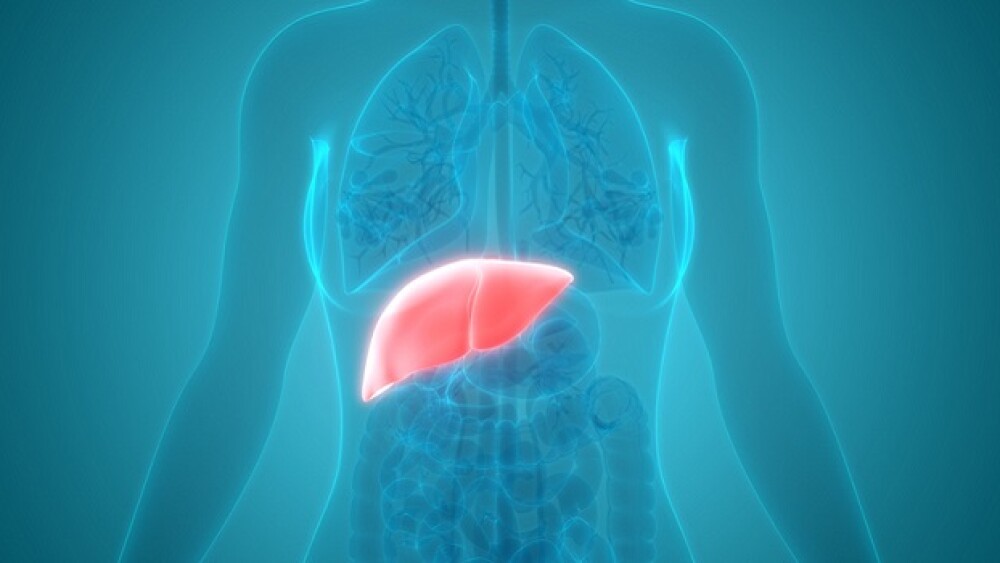Analysts said CymaBay’s seladelpar is emerging as the “therapy of choice in the second-line setting” and “could impact the treatment landscape” across a spectrum of primary biliary cholangitis patients.
Pictured: Illustration of a human body with the liver highlighted/iStock, magicmine
CymaBay Therapeutics’ liver disease candidate, seladelpar, hit its primary and key secondary endpoints in the Phase III RESPONSE trial, the company announced Thursday.
The clinical-stage biopharma was testing its selective PPARδ agonist in adult patients with primary biliary cholangitis (PBC), a disease in which the bile ducts in the liver are slowly destroyed.
The year-long, double-blind study was looking at 193 PBC patients that either had an inadequate response or an intolerance to the main treatment for PBC, ursodeoxycholic acid. The study’s primary composite endpoint was related to serum alkaline phosphatase (ALP), a key indicator of liver damage and/or bone disorders.
CymaBay said in Thursday’s announcement that 61.7% of patients met this endpoint, versus 20% of patients taking a placebo. The study also met a second primary endpoint of ALP normalization and another related to itching.
The drug also hit safety targets with “no treatment-related serious adverse events in the study,” according to CymaBay, which added that seladelpar’s “tolerability profile appeared favorable and consistent with previous studies.”
CymaBay CEO Sujal Shah in a statement said that many patients with PBC “suffer from incessant itching while knowing that their disease can progress to the point where a liver transplant could become their only option,” adding that the positive top line results “represent an important step toward potentially changing the treatment paradigm” for these patients.
Gideon Hirschfield, chair of autoimmune liver disease research at the Toronto Centre for Liver Disease, said in the release that the results highlight the “potential for an efficacious and safe new therapy that not only achieves the composite improvements in liver tests, but for a significant proportion of patients, normalizes these measures” and “support that seladelpar reduced itch, a particularly challenging symptom that continues to negatively impact quality of life for many PBC patients.”
CymaBay indicated that the results from the Phase III RESPONSE trial support “advancement to regulatory discussions and filing for regulatory approval” with the U.S. Food and Drug Administration, the Medicines and Healthcare products Regulatory Agency and the European Medicines Agency.
William Blair analysts in a Thursday note to investors said that they are bullish on the results, writing that the “hat trick” achieved by CymaBay makes their investment firm “highly enthusiastic about the prospect of approval and [we] believe that seladelpar will quickly emerge as the best-in-class second-line agent in PBC.”
Investors were slow to react, however, with share prices increasing by just under 8% on premarket trading. “Given the stock’s relatively muted reaction, we are aggressive buyers on the differentiated data,” the analysts added, noting that “with the ongoing Phase III IDEAL study, seladelpar could impact the treatment landscape across a broad spectrum of PBC patients.”
Connor Lynch is a freelance writer based in Ottawa, Canada. Reach him at lynchjourno@gmail.com.





